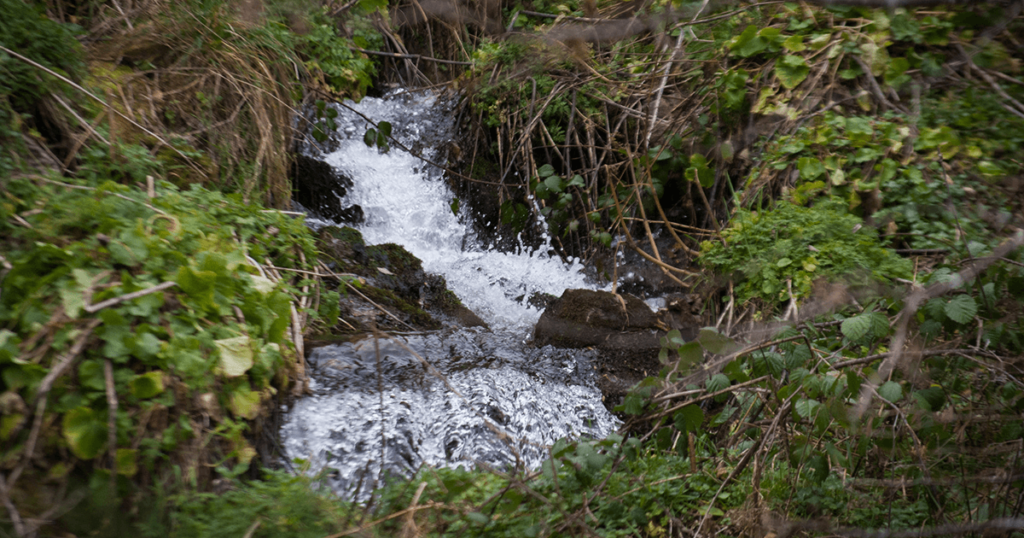
Natural springs abound in the hills on the outskirts of Gijón, and I often pass one or another on my runs. A few have regular users who come for the pure water, which they fill jugs with to take home. Upon occasion, when the water’s been cut off to the house, I’ve gone myself to the nearest spring, called La Peñuca, to fill up, and on a hot afternoon on the walking path near the city I might steer toward a spring, and I’ll see other runners or walkers stopping for a drink there too. But some of the springs here in the hills are so mossy and still, with only a track leading to them, that you wonder if anyone stops anymore. El Güeyu is the name of one of these. I asked my running partner what the word means.
He touched the corner of his eye. “El güeyu,” he said, “el güeyu,” as if reminding me of what any child knows. The word is Asturian, so not every child does know it. In Spanish, the word for eye is ojo, which used as an exclamation also means, “Watch out!”
His grandfather, my friend said, was called Güeyinos, little eyes, because his were so small.
The grandfather was a dowser, and he taught the art and the trade to his son, my friend’s father. Both men were miners, too, digging for coal in the mountains near Langreo, in what’s called La Cuenca Minera, the mining valley, and practiced their dowsing on the side, continuing long after they’d retired from mining.
Wouldn’t it be something if this spring were named for the grandfather? But no—a spring, a manantial, will bubble forth from a source close to the surface and doesn’t need to be discovered, a word in both English and Spanish meaning to reveal. In the case of underground water, the uncovering is literal, requiring the removal of layers of dirt and stone in digging down to it.
The grandfather was once called upon to find water in a field. When he told the farmer where to dig, it was in a corner far from the cows and pigs at the barn and the house that he was building, so the man ignored the grandfather’s counsel. He guessed if there was water in one corner, there would be water in another, but he dug and dug without finding any. Resigned, he called the grandfather back to point out again the exact spot. The grandfather refused to return, but his son, my friend’s father, was willing. This time, the man did dig in the far corner and did find water. It cost him two fees rather than one, and a lot of extra digging. The moral might be, ¡Ojo! Even advice you don’t like might be good.

